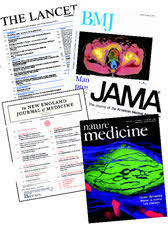April 8th, 2011 by GarySchwitzer in Opinion, Research
1 Comment »

There’s an important paper in PLoS Medicine, “Strategies and Practices in Off-Label Marketing of Pharmaceuticals: A Retrospective Analysis of Whistleblower Complaints.” The authors provide this background on off-label marketing:
“An important part of the (drug) approval process is the creation of the “drug label,” a detailed report that specifies the exact diseases and patient groups in which the drug can be used and the approved doses of the drug.
Physicians can, however, legally use FDA-approved drugs ‘off-label.’ That is, they can prescribe drugs for a different disease, in a different group of patients, or at a different dose to that specified in the drug’s label. However, because drugs’ manufacturers stand to benefit financially from off-label use through increased drugs sales, the FDA prohibits them from directly promoting unapproved uses. The fear is that such marketing would encourage the widespread use of drugs in settings where their efficacy and safety has not been rigorously tested, exposing patients to uncertain benefits and possible adverse effects.”
The authors conclude: Read more »
*This blog post was originally published at Gary Schwitzer's HealthNewsReview Blog*
February 18th, 2011 by GarySchwitzer in Health Policy, Opinion
No Comments »

This is a guest column by Ivan Oransky, M.D., who is executive editor of Reuters Health and blogs at Embargo Watch and Retraction Watch.
 One of the things that makes evaluating medical evidence difficult is knowing whether what’s being published actually reflects reality. Are the studies we read a good representation of scientific truth, or are they full of cherry-picked data that help sell drugs or skew policy decisions?
One of the things that makes evaluating medical evidence difficult is knowing whether what’s being published actually reflects reality. Are the studies we read a good representation of scientific truth, or are they full of cherry-picked data that help sell drugs or skew policy decisions?
That question may sound like that of a paranoiac, but rest assured, it’s not. Researchers have worried about a “positive publication bias” for decades. The idea is that studies showing an effect of a particular drug or procedure are more likely to be published. In 2008, for example, a group of researchers published a New England Journal of Medicine study showing that nearly all — or 94 percent — of published studies of antidepressants used by the FDA to make approval decisions had positive results. But the researchers found that when the FDA included unpublished studies, only about half — or 51 percent — were positive.
A PLoS Medicine study published that same year found similar results for studies long after drugs were approved: Less than half — 43 percent — of studies used by the FDA to approve 90 drugs were published within five years of approval. It was those with positive results that were more likely in journals.
All of that can leave the impression that something may work better than it really does. And there is at least one powerful incentive for journals to publish positive studies: Drug and device makers are much more likely to buy reprints of such reports. Such reprints are highly lucrative for journals. Read more »
*This blog post was originally published at Gary Schwitzer's HealthNewsReview Blog*











